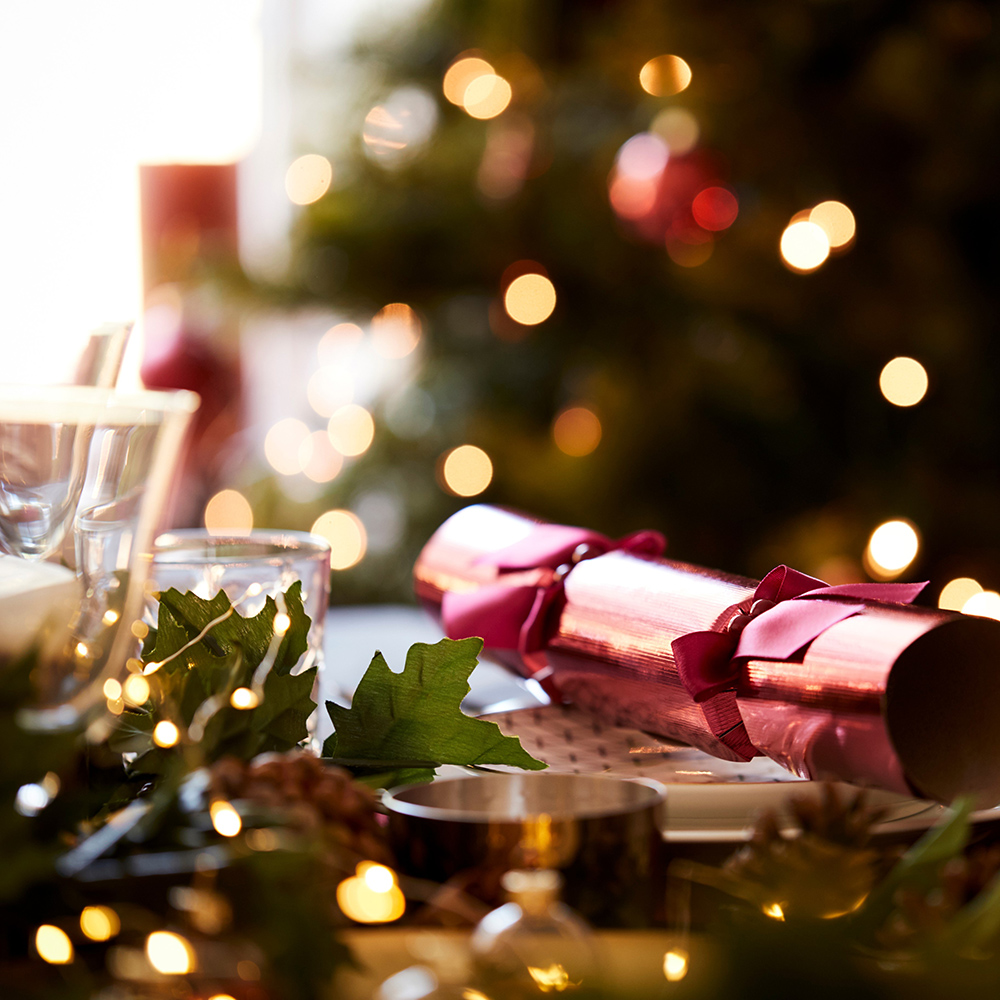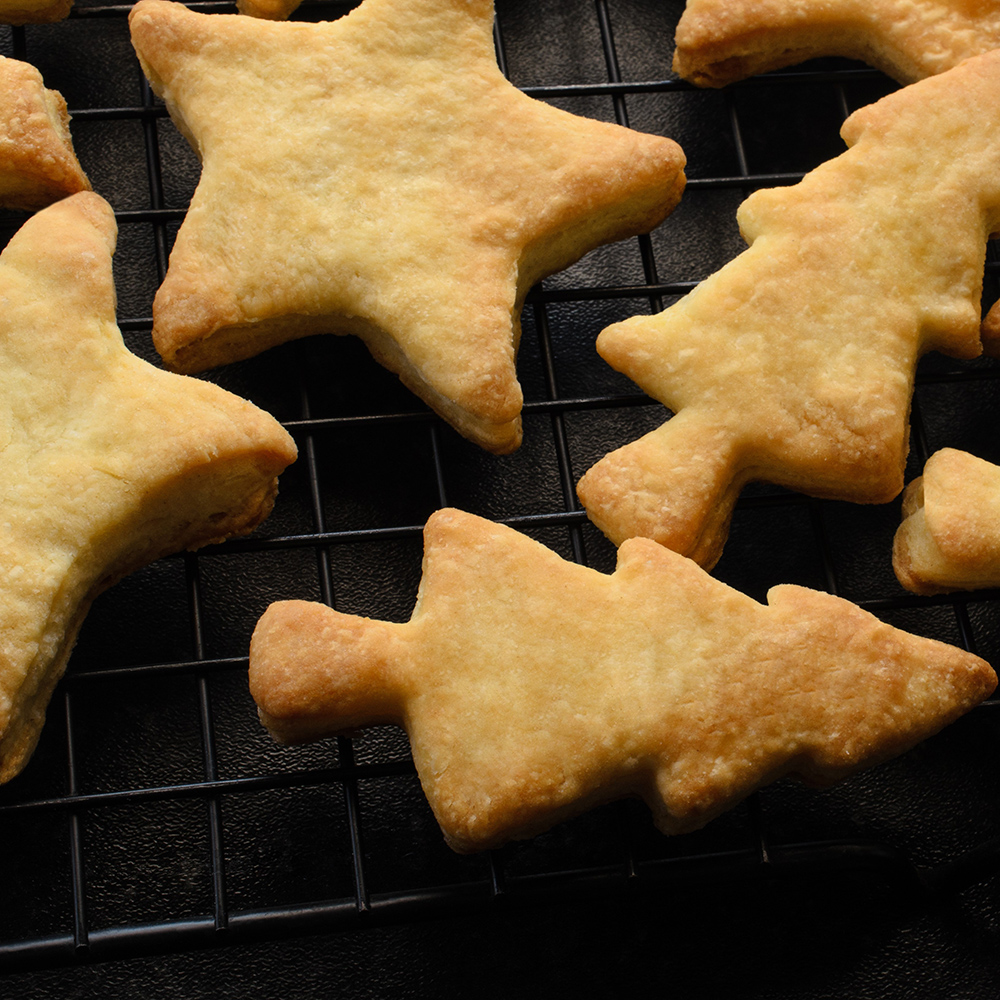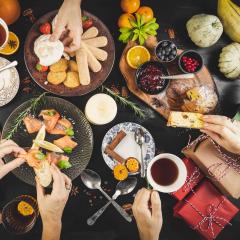From beautifully wrapped presents to sparkling decorations, heavily laden lunch tables to generous gift giving, Christmas can be hard to do sustainably.
Even those of us regularly committed to making sustainable choices from January to November sometimes struggle to hold our line at Christmas.
According to Professor Kelly Fielding – who specialises in sustainability behavioural change strategies at the School of Communication and Arts – there are good reasons why sustainability is so difficult at this time of year.
Happily, there are also things we can do to change our habits – while keeping alive the Christmas magic this season.
Memories and nostalgia
 Nostalgia can play a big part in why we continue to enact traditions that we know are not very environmentally friendly at Christmas, Professor Fielding says.
Nostalgia can play a big part in why we continue to enact traditions that we know are not very environmentally friendly at Christmas, Professor Fielding says.
“Christmas traditions are often re-visited when people have young children,” she notes.
“You have your own childhood memories of what Christmas was like, such as waking up in the morning and having a pile of presents to open – and you want to recreate these for your family.”
“But, it’s worth noting that people typically remember feelings rather than facts.
“So, if you think back to what you really recall about Christmas as a child, you might find it’s less about the exact presents you received, or the perfectly decorated tree or the single-wear outfit.
“Perhaps it’s more likely to be the ‘specialness’ of bringing family together, visiting cousins, calling in to see friends and so on. All the activities and the time you spend together as part of the celebrations might be what really create the memories.”
Read our story for ideas on new holiday habits: 5 tips for a sustainable holiday season
Family expectations
 Family expectations are another key contributor to unsustainable choices in the festive season. And sometimes, they continue simply because nobody starts the conversation, Professor Field says.
Family expectations are another key contributor to unsustainable choices in the festive season. And sometimes, they continue simply because nobody starts the conversation, Professor Field says.
“No-one wants to feel like they are disappointing their loved ones – especially at Christmas – but some suggestions might be better received than you think. What if everybody is thinking the same thing?”
When it comes to behavioural change, it can also help to start small.
“If you’re worried about rocking the boat, consider using this year to seed ideas and then next year and the year after that (and so on!) to keep working towards more sustainable solutions.
“For instance, perhaps at the Christmas table this year, you could start a light-hearted conversation about different ways your colleagues are doing gift-giving. And sound out the responses.
“Change doesn’t have to mean total overhaul and abandoning everything the family holds dear. It could just be making small tweaks over time that gradually start to shift traditions.
“Instead of doing away with gifts altogether, consider buying artisan, ethical food items that people might not normally treat themselves to (such as cheeses, handmade biscuits, high quality chocolates etc); or experiences like workshops, concerts or even just movie tickets.
“You could also donate to charities. You can personalise this idea by selecting charities that are aligned with people’s passions (e.g. literacy, sports, areas of health or research) and giving handwritten cards that talk about why you chose it and what the money will achieve.”
Read our story for gift, decoration and feasting ideas: 12 days of sustainable Christmas
Social norms
 The main reason that people put aside their usual environmental concerns at Christmas is social norms. These have two key elements, Professor Fielding explains:
The main reason that people put aside their usual environmental concerns at Christmas is social norms. These have two key elements, Professor Fielding explains:
- What people around us approve of
- What people around us do.
“We live in a society that largely celebrates Christmas fairly similarly, no matter the household. So, we receive strong messages about social expectations.
“A lot of these traditions are amplified by Christmas marketing and merchandising, which appears in stores as early as July these days!
“These expectations extend not just to which gifts we buy, but also the volume of gifts, the quantities of food, the idea of the designer tree or table and so on. More often than not, these ideas involve buying a whole range of disposable items to create the ‘perfect Christmas experience’.
“It’s tricky to step outside of these norms – again, especially when you have a young family who observe the same traditions among their peer group. But consider the example you want to set over the long term.
“Particularly when children are little, you have the opportunity to create your own family traditions.”
Read our story on re-thinking Christmas shopping: Celebrate with less waste this season



